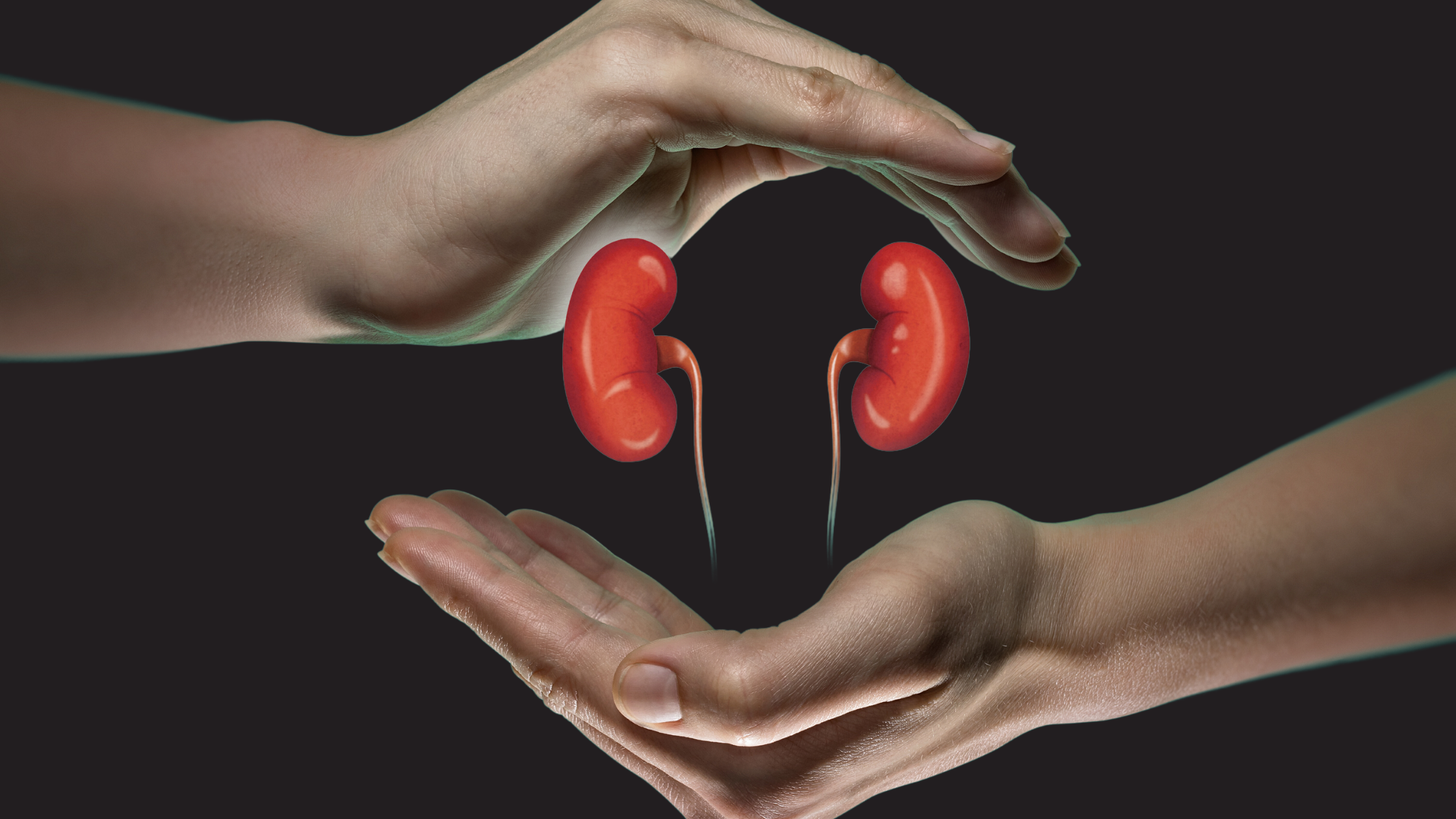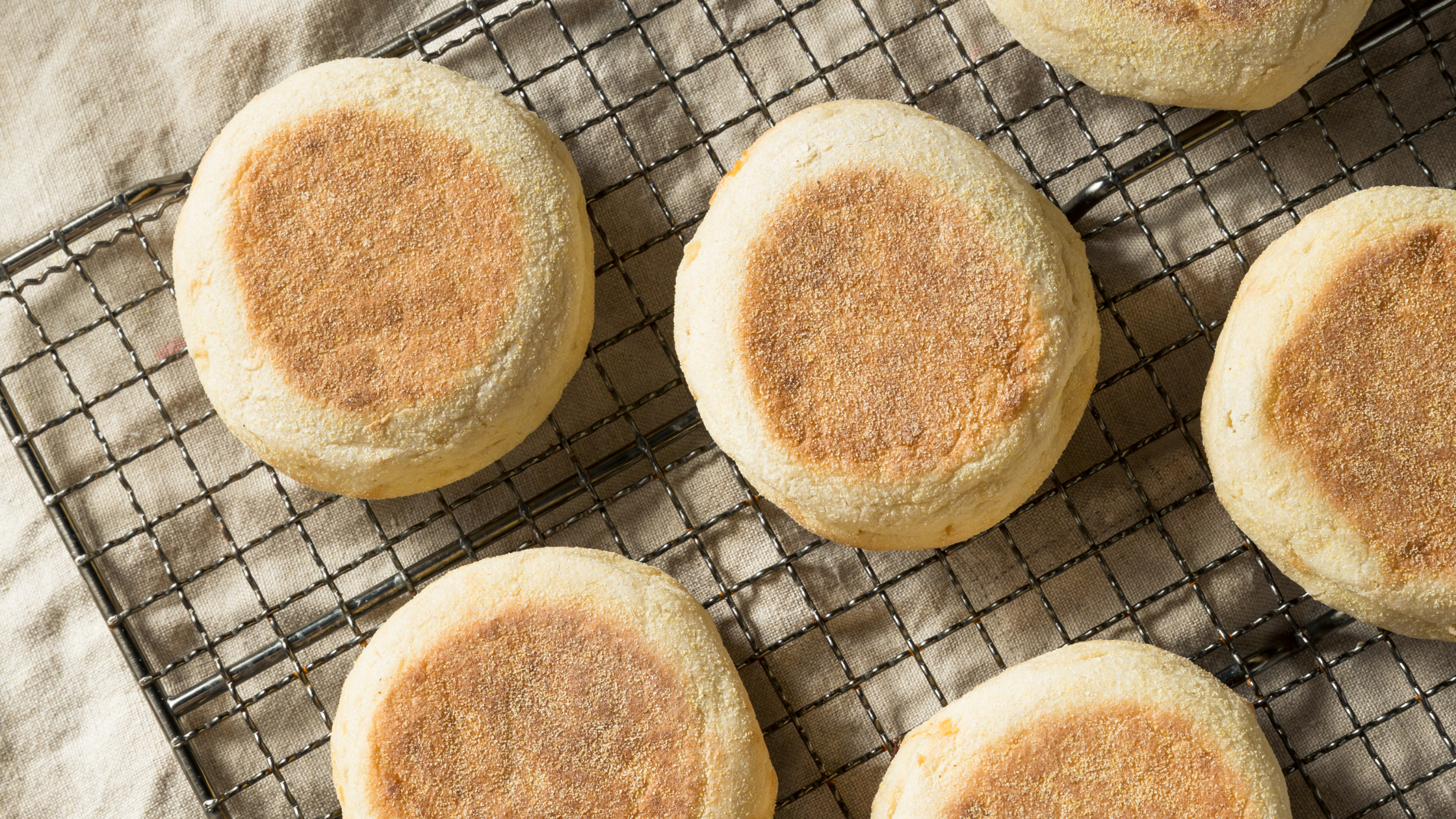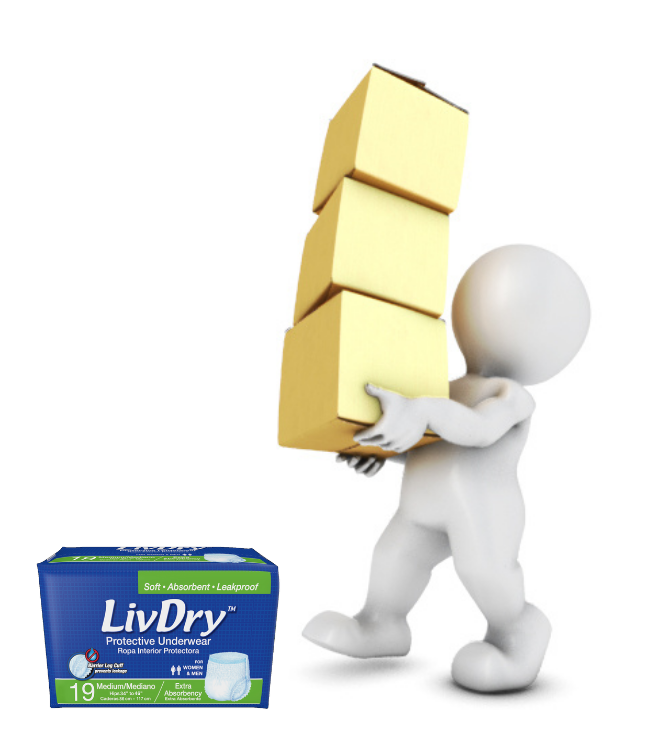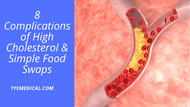8 Complications of High Cholesterol and Simple Food Swaps to Fight It
Written by TYE Medical on Apr 29th 2022
It might come as a shock to you, but cholesterol is a necessary part of bodily functions like cell building and aiding in digestion (in the form of bile). Your body needs cholesterol and makes its own supply. But as with most things, moderation is key. When we have an abundance of cholesterol, it erodes health rather than supporting it. This means high cholesterol has a domino effect that leads to complications throughout your system.
And while there are medications to decrease the presence of this fatty and waxy substance in your blood, the first line of defense, as you probably know, is through diet and exercise. So what are those complications of high cholesterol and what foods can you swap to aid your body in this battle? Here is what you need to know.
1. High Blood Pressure

When cholesterol collects along your artery walls, it combines with other substances and hardens into “plaque.” This makes your arteries less flexible. Healthy arteries have enough flexibility to respond to changing blood pressure, keeping your system stable. But “hardened arteries” don’t have this flexibility, so blood pressure increases. The more plaque, the higher the blood pressure.
Unfortunately, this increased pressure damages artery walls and makes them more susceptible to collecting plaque and continuing the vicious cycle. High cholesterol and high blood pressure are closely linked.
2. Coronary Artery Disease
High cholesterol can eventually cause plaque to build in the arteries surrounding your heart. If plaque continues to build and narrows these arteries enough, you can experience heart failure. This means your heart isn’t able to pump blood adequately throughout your body.
If the condition is managed with arterial stents and medications, your heart muscle can remain unaffected (provided you haven’t had a heart attack). But if left unmanaged and a blood clot forms in your coronary arteries, it could cause a heart attack.
3. Chest Pain (Angina)

It’s common to experience chest pain when narrowed arteries (due to plaque build-up) restrict blood flow to your heart. This is a red flag for doctors to look for advanced coronary artery disease. The pain is your heart's response to not getting enough oxygen (ischemia) from the lack of blood flow.
While doctors can prescribe medications to ease the pain, the only cure is to treat the underlying blockage that’s restricting blood flow (and oxygen) to the heart. This usually requires a procedure to insert a stent into the blocked or narrowed arteries.
4. Heart Attack
When narrowed arteries, due to high cholesterol, prevent the proper flow of blood to the heart, it can lead to heart failure as noted above. But further complications arise when the plaque lining your arteries ruptures, causing a blood clot to form. A blood clot in your coronary arteries can block blood flow to your heart and trigger a heart attack.
5. Stroke

High cholesterol and plaque buildup can also form blood clots that block blood flow to your brain, causing a stroke. Just as with your heart, the longer your brain is deprived of oxygen and other nutrients the more permanent the damage that’s done to the organ. High cholesterol is a major risk factor for both a heart attack and stroke, not only because it causes plaque buildup but because continued cholesterol and plaque formation destabilizes existing plaque, making a clot more likely.
6. Peripheral Artery Disease
You might also experience complications in your leg muscles when high cholesterol leads to plaque buildup and reduced blood flow to your peripheral arteries. This can cause pain in your legs when you walk. Just like you feel chest pain when blood flow is restricted to your heart, your leg muscles become painful when deprived of oxygen also.
7. Chronic Kidney Disease

Most people don’t realize that high cholesterol can affect their kidneys. This happens when arteries to the kidneys narrow, limiting blood flow to the organs. Over time, your kidneys are deprived of adequate oxygen and are damaged.
One possible sign that you have blocked kidney arteries is high blood pressure that isn’t responding to medication. Your kidneys filter fluids and blood and help regulate blood pressure. When they aren’t healthy enough to function properly it also affects your blood pressure.
8. Alzheimer’s Disease
A July 2021 study indicates that high LDL cholesterol (or bad cholesterol) in midlife moderately increases your risk of developing dementia and Alzheimer’s. This makes high LDL a risk factor for dementia. However, researchers found no such link with HDL cholesterol or high triglycerides.
But why is this the case? The relationship between high LDL levels and dementia or Alzheimer’s isn’t yet understood. But the risk for developing dementia is noticeably higher if you have high cholesterol regardless of how the two are related.
Combat High Cholesterol with Simple Food Swaps
These 8 complications of high cholesterol are enough to motivate most of us to watch our cholesterol and manage levels. But how do you do that?
In addition to regular exercise, keeping a close eye on your diet is crucial. But keep in mind that not everyone can manage their cholesterol through diet and exercise alone. Just like diabetes and other conditions, it’s critical that you manage the condition well and include medications as part of your treatment if necessary. Uncontrolled cholesterol will certainly lead to several of the complications listed in this article.
But the good news is that even if you must begin or continue medications for high cholesterol, adequate dietary changes and exercise can help you maintain or decrease your medications.
Here are some simple food swaps to help you manage high cholesterol.
1. Swap Red Meat for Fish

If your cholesterol levels are less than stellar, it’s best to avoid red meat as much as possible. An occasional indulgence can be okay, but when it comes to your regular diet, replacing red meat with fish is a better choice.
If you really want to be proactive, try eating fattier varieties of fish like salmon, trout, tuna, and mackerel. “Fattier” fish may seem counterintuitive, but this type of seafood is packed with omega 3-fatty acids that increase HDL cholesterol and decrease triglycerides. This lowers your risk of heart disease and stroke.
2. Swap Out Unhealthy Salad Toppings
Chances are that if you’re concerned about your cholesterol and general health, you’re eating more salads. Fruits and veggies are great for helping to lower cholesterol. But if you’re loading your salad with highly processed croutons and dressings rich in saturated fat, the benefits of your salad are compromised.
Instead, swap croutons for nuts, which are rich in healthy fats and fiber, both of which reduce cholesterol. And opt for healthier fats (or no fat) when choosing a salad dressing. Try cholesterol-friendly oils like extra-virgin olive oil, avocado oil, flaxseed oil, or grapeseed oil.
3. Swap a Croissant or Pastry for a Whole-Grain English Muffin

Who isn’t tempted by a flaky, buttery croissant or sweet pastry? But the saturated fat and processed white flour in your favorite breakfast treat can spell disaster for your cholesterol levels. If you want to combat elevated cholesterol, you’ll need to adjust even your breakfast choices.
Whole-grain English muffins give you the tasty carbs you crave in the morning along with a sweet or savory flavor. Because they’re whole grain, they contain heart-healthy fiber that helps fight LDL cholesterol and are lower in saturated fat that fuels blood cholesterol.
Top your healthier breakfast option with whatever nut butter you choose and fruit preserves that aren’t loaded with added sugar.
4. Swap Milk Chocolate for Dark
If you’re a chocolate lover, there’s no need to sacrifice your enjoyment in the name of good health. You can manage your cholesterol levels while partaking of the darker stuff that’s at least 70% cacao. It contains notably less saturated fat and can even lower LDL cholesterol levels, according to many studies. Your heart may also benefit from the high levels of flavanols contained in dark chocolate.
5. Swap Ground Beef for Ground Turkey
Before you wrinkle your nose, consider that in many savory dishes, it’s not easy to tell the difference. Try using ground turkey in your next batch of chili, and you’ll find it’s (almost) just as good. But even better than the taste is the amount of fat, especially saturated fat, that you cut from your meal. Most ground turkey has just 7% fat compared to 20% fat in the average ground beef. It’s saturated fat that pushes up your LDL cholesterol.
You can also try ground turkey in spaghetti or meatloaf.
High Blood Pressure Can Affect Your Bladder

If high cholesterol is raising your blood pressure, you might experience frequent urination or nocturia (nighttime urination). This is further complicated if you’re retaining fluid and have excess fluid in your system.
Your doctor can help you manage your blood pressure but meanwhile you may need protection from bladder leaks. You can find a range of premium incontinence products on TYE Medical’s online store. Enjoy free, discreet shipping on all orders!

